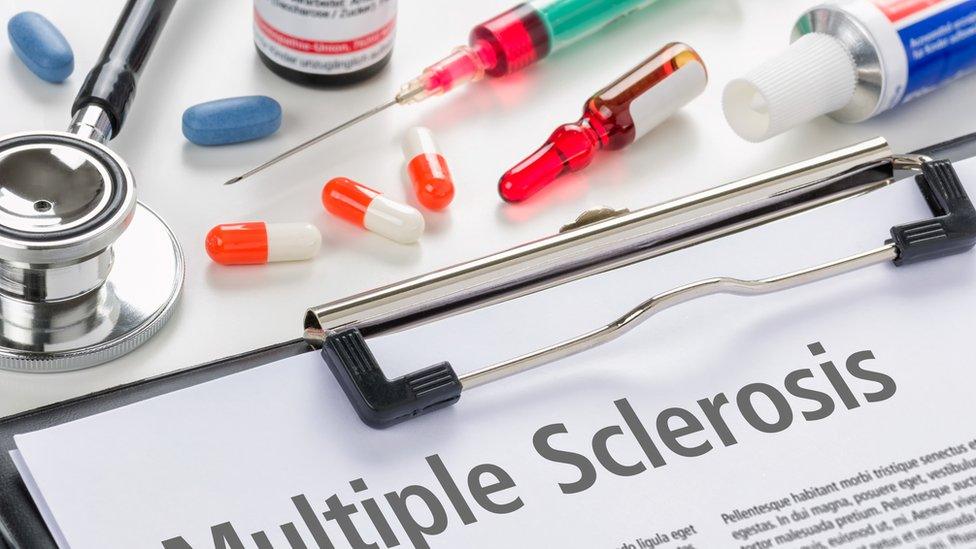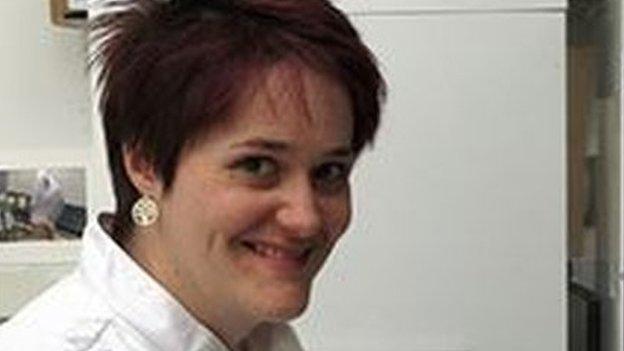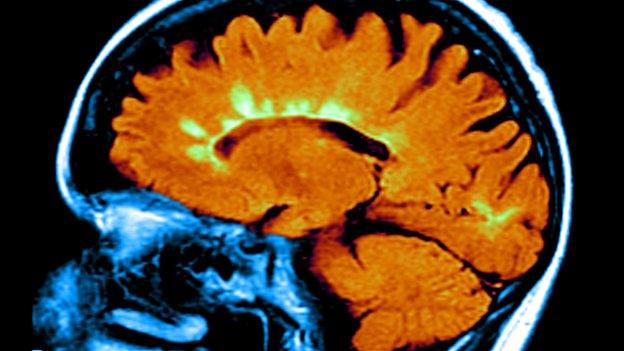Wales 'lags behind' in access to MS patient treatment
- Published

People living with multiple sclerosis in Wales are "lagging behind" the rest of the UK in access to treatments, it has been claimed.
The MS Society found 49% of 575 Welsh people surveyed who might benefit from taking a disease modifying therapy (DMT) are doing so.
This is behind the UK (56%), Scotland (57%) and Northern Ireland (77%), although up from 30% in 2013.
The Welsh Government said it accepted that improvements are needed.
DMTs, external, which can reduce relapses and slow the progression of MS, include tablets, injections and infusions.
But the survey found differences in the numbers of patients who could access treatment, care and support across the UK and within Wales.
The MS Society said this was due to a variety of issues, including under-resourcing and lack of infrastructure to monitor a new treatment or drug, and the process that local health boards go through to add a new drug on to their lists.
There are an estimated 4,900 people living with MS in Wales and more than 100,000 people across the UK.

MS causes the body's own immune system to attack the lining of nerves in the brain and spinal cord
MS Society Cymru director Lynne Hughes said: "MS is an unpredictable and incurable condition that affects people's nervous systems.
"It can attack suddenly or progress steadily, bringing a range of symptoms which can include sight loss, incontinence, fatigue and mobility problems.
"People living with MS require access to treatments to manage their condition to improve their outcomes.
"Our research has shown us that while some improvements have been made, we still have some way to go to ensure that people living with MS are able to access the right treatment at the right time, no matter where they live in Wales."
The MS Society acknowledged that the Welsh Government's new treatments fund is expected to improve new treatments for conditions such as MS.
Patient review
But it called for a range of improvements, including treatments to be discussed with patients within six weeks of diagnosis, for health boards to make medicines readily available once approved for use, and for patients to have a review of their care at least once a year.
A Welsh Government spokesman said it was pleased to see improvements in access to DMTs and to neurologists.
"Clearly there are some areas where improvements still need to be made and we will ask the chair of the Neurological Conditions Implementation Group to draw this report to health boards' attention so it can be considered as part of their service planning," the spokesman said.
"A number of the recommendations support actions already included within the neurological conditions plan.
"The implementation group are currently looking at refreshing the delivery plan and will use this opportunity to see if any additional actions are required."
In total, the MS Society surveyed 11,024 people across the UK between February and April 2016.
- Published10 June 2016
- Published10 June 2016

- Published31 August 2015

- Published26 August 2015
